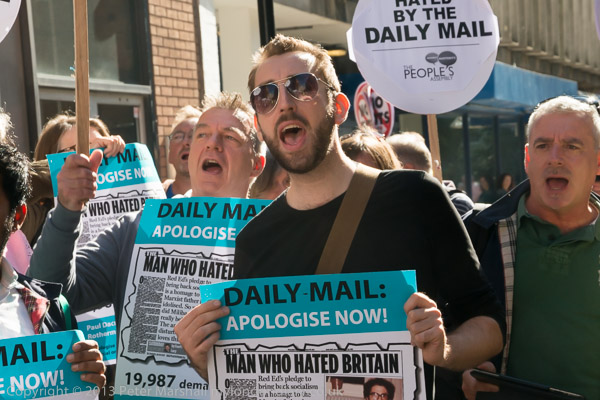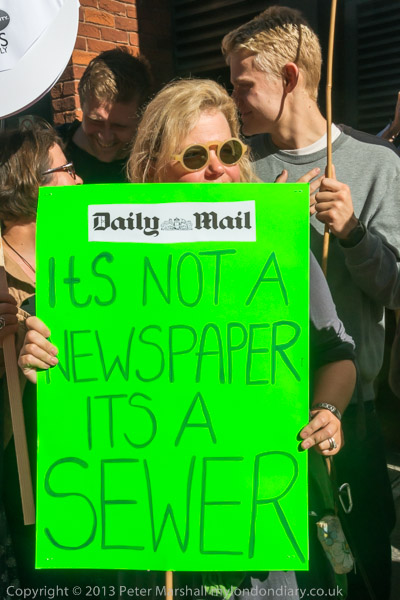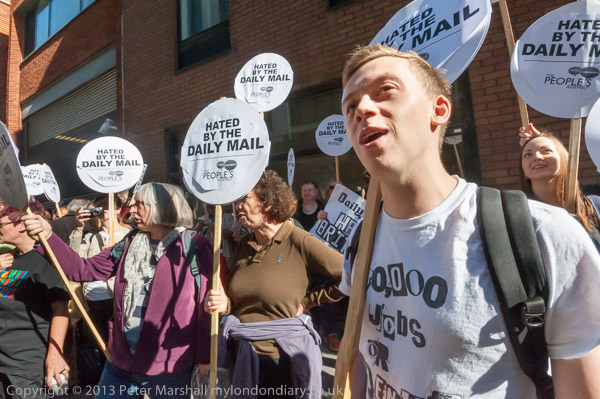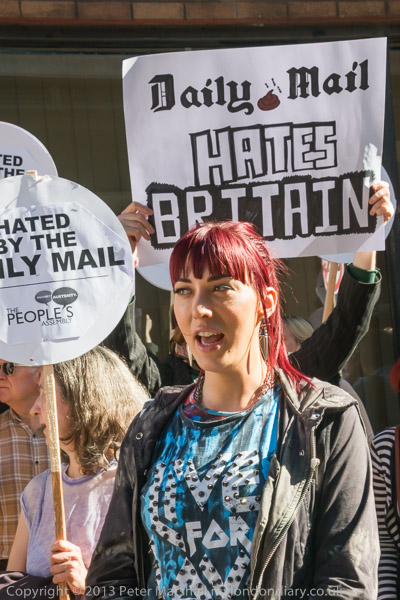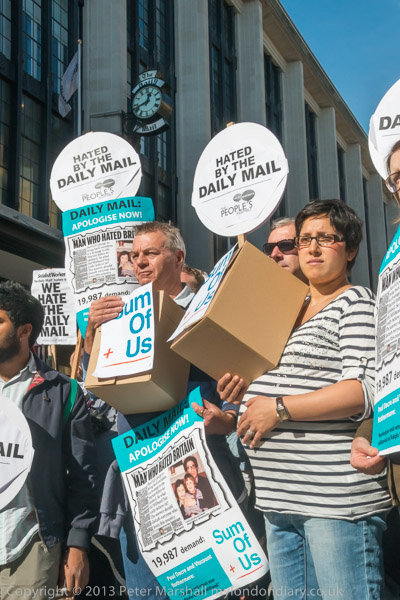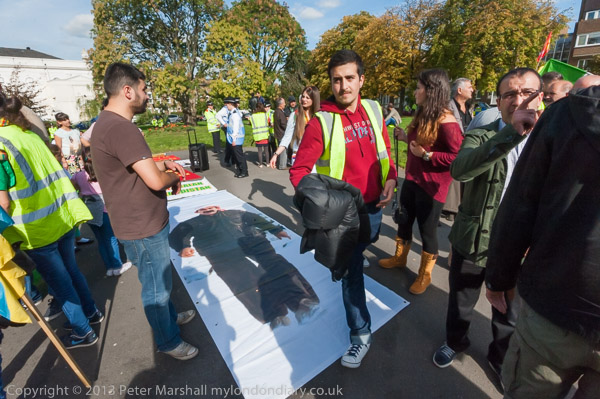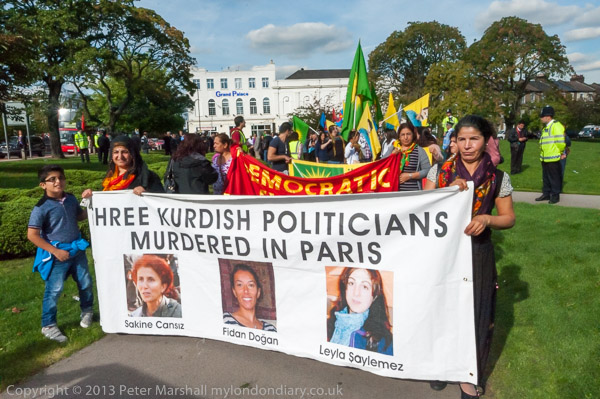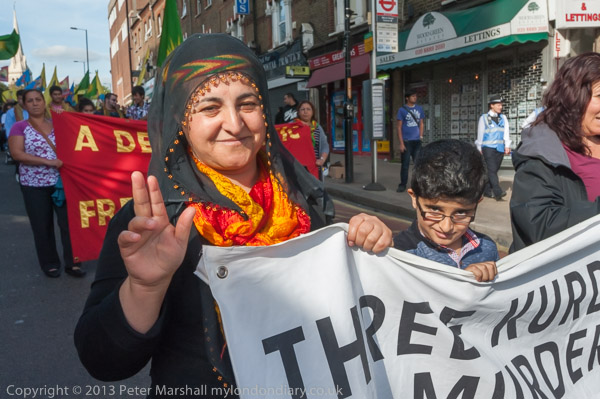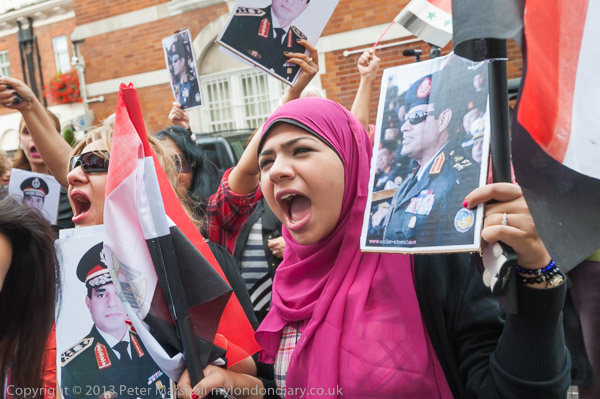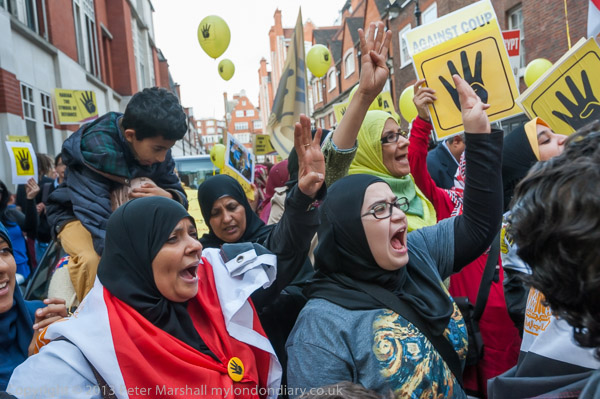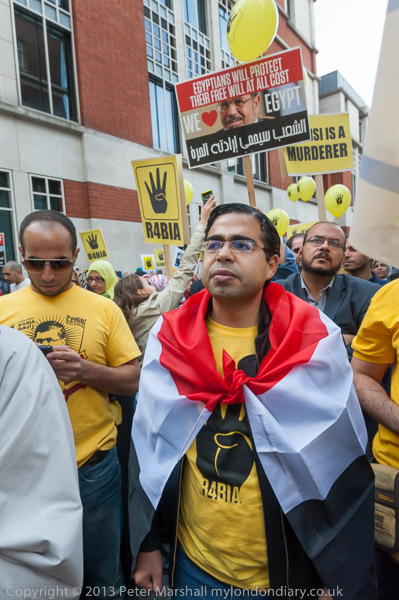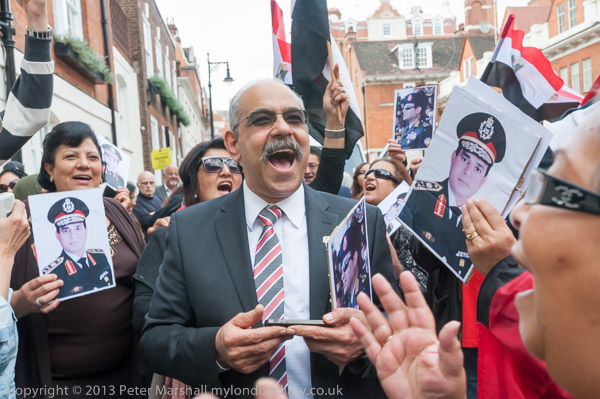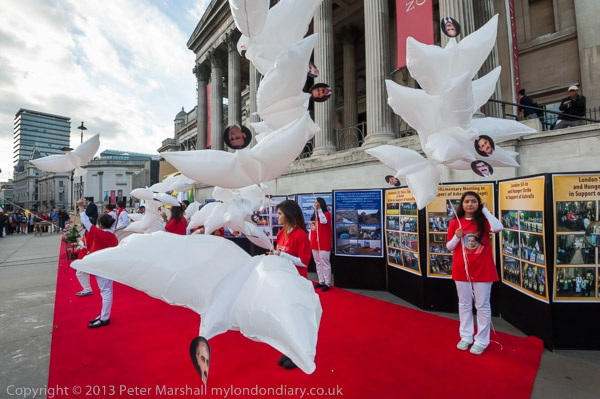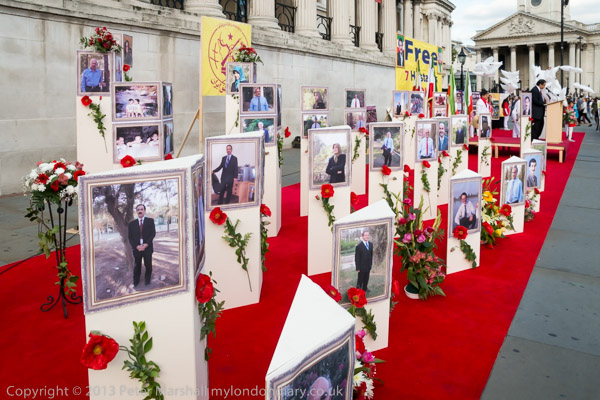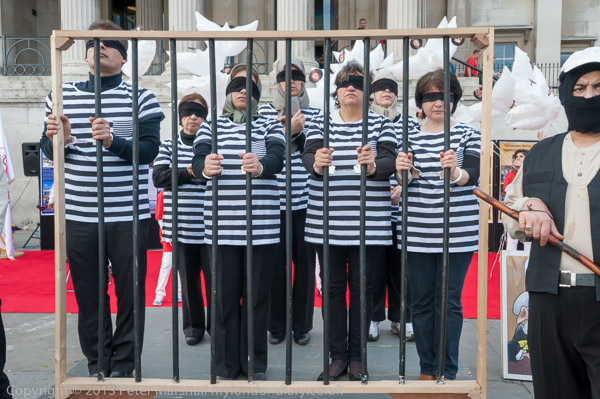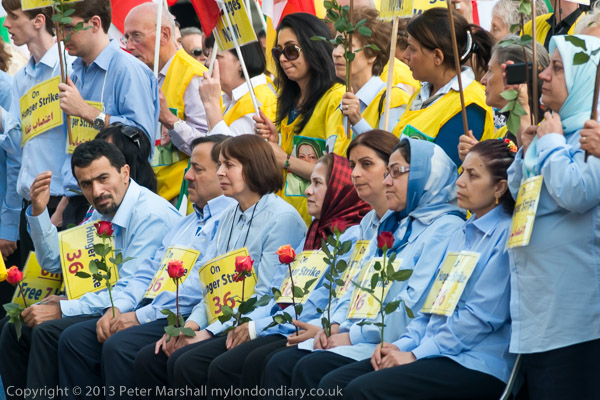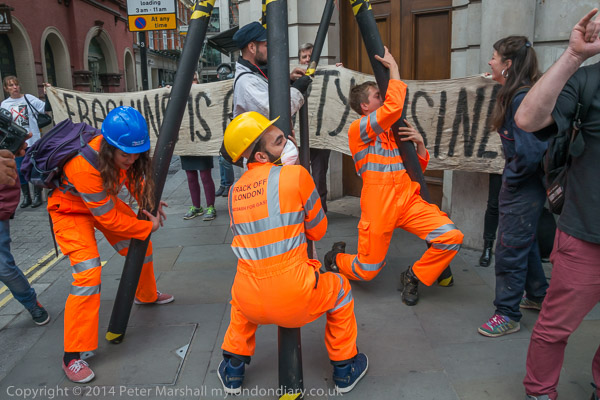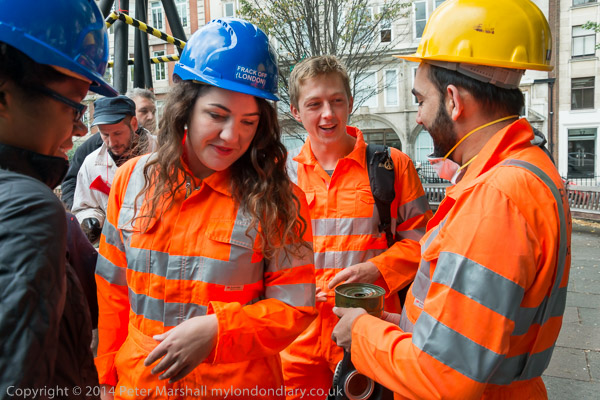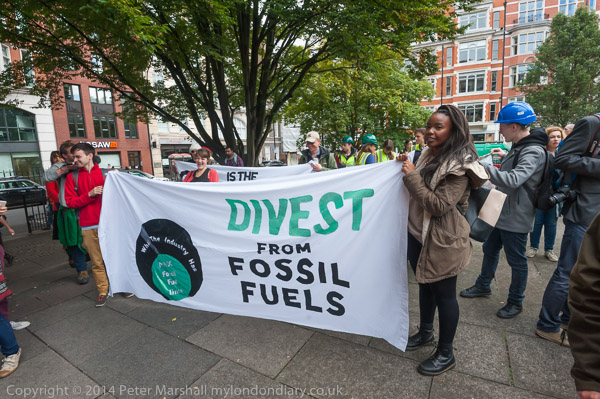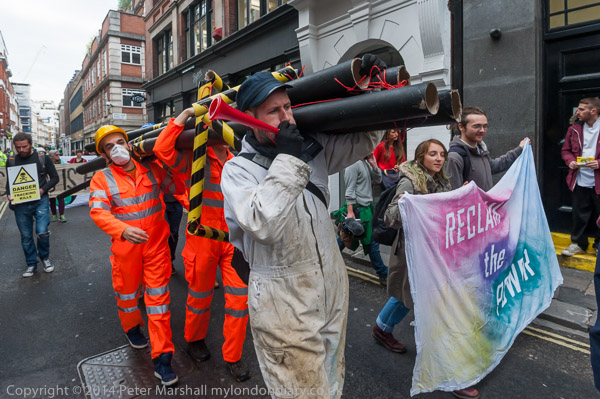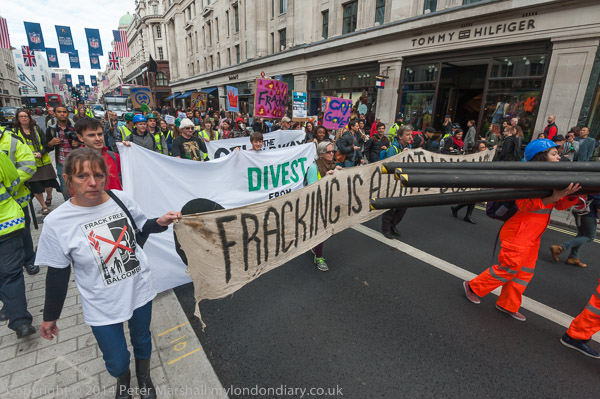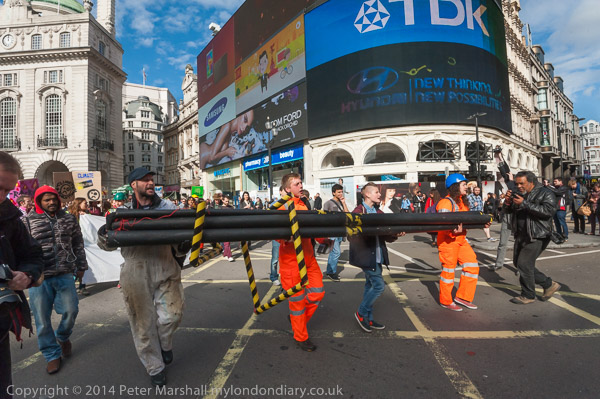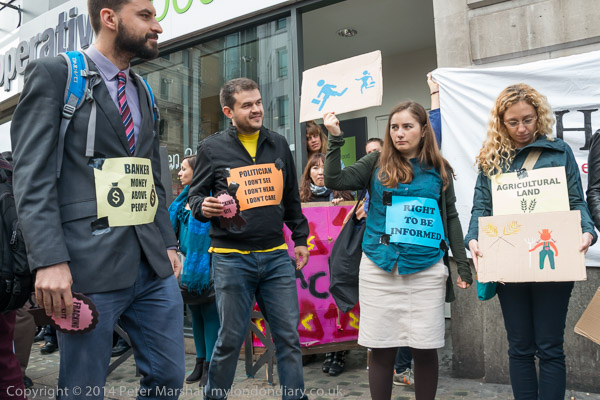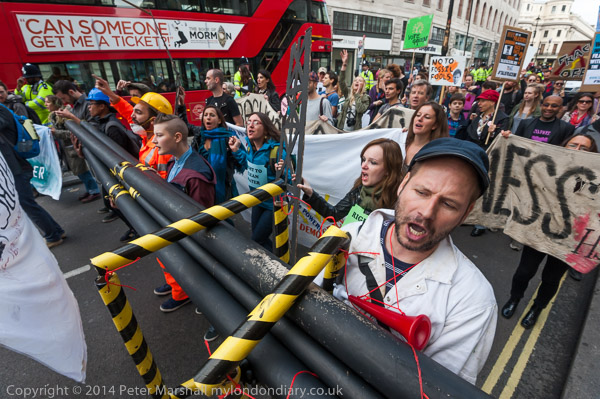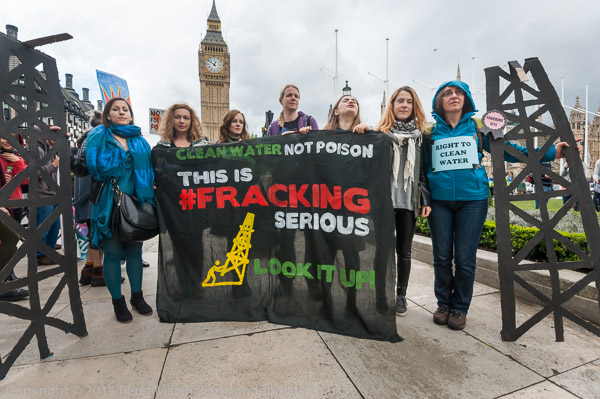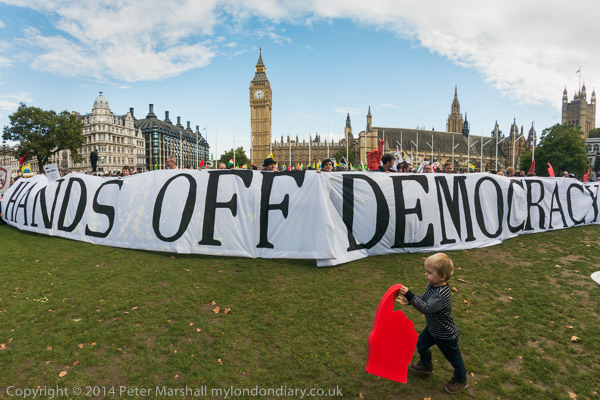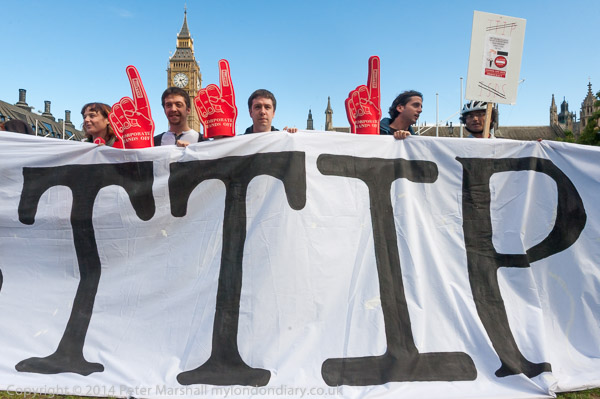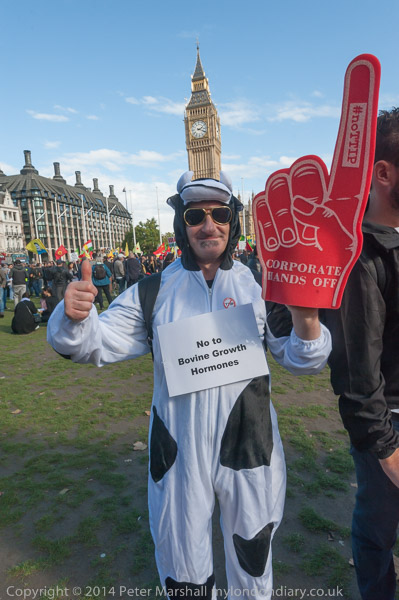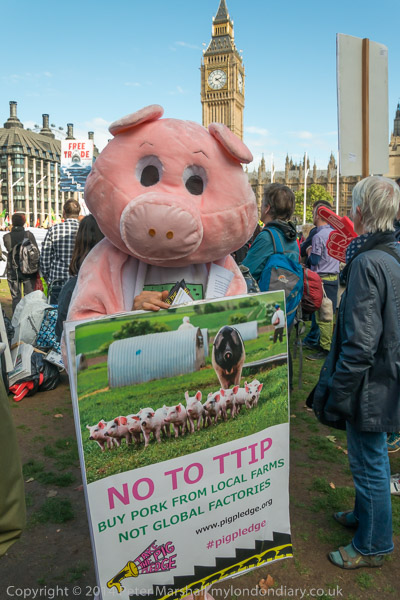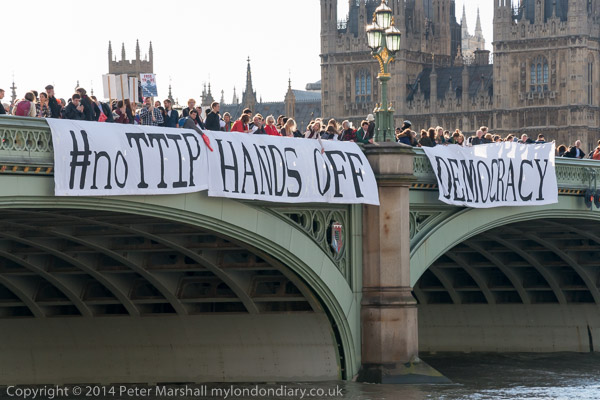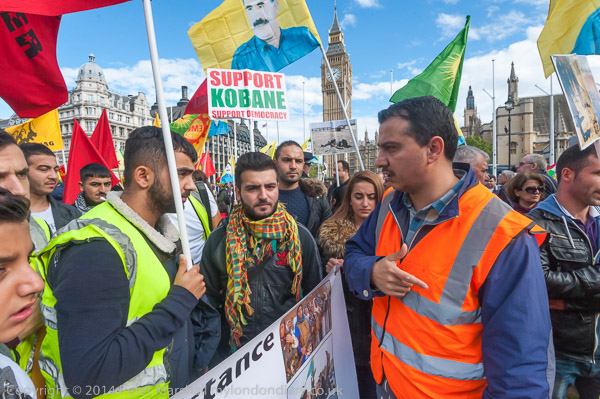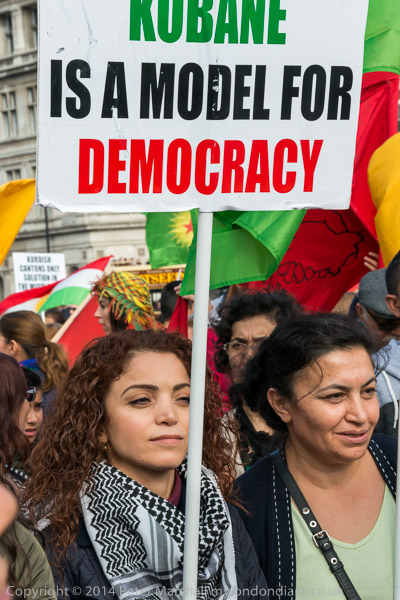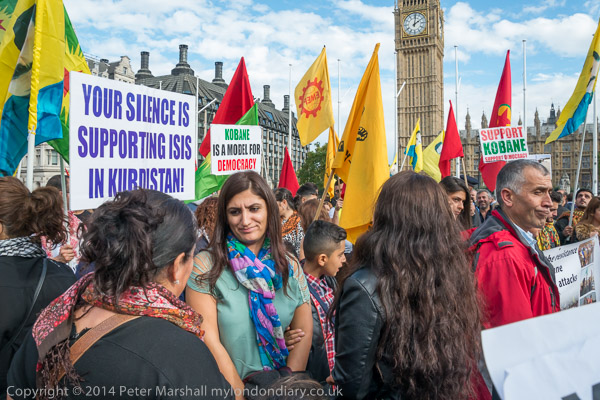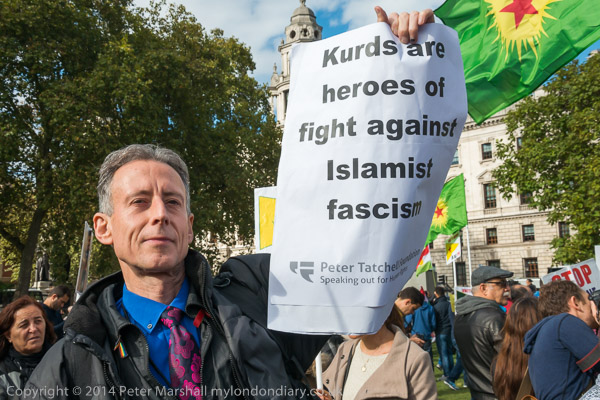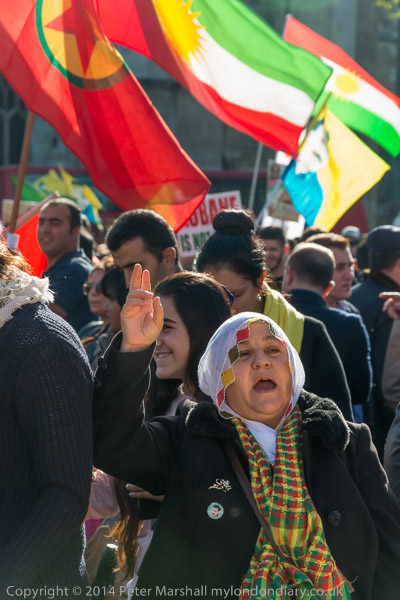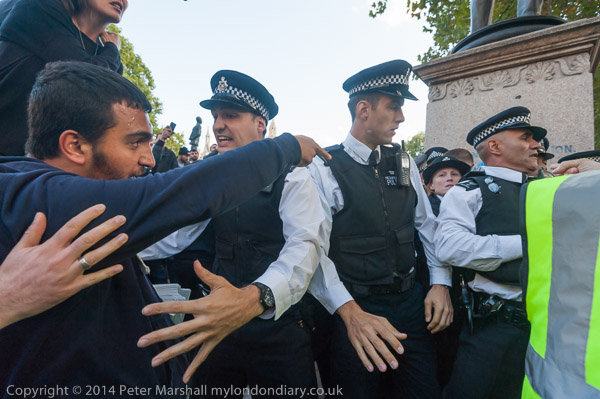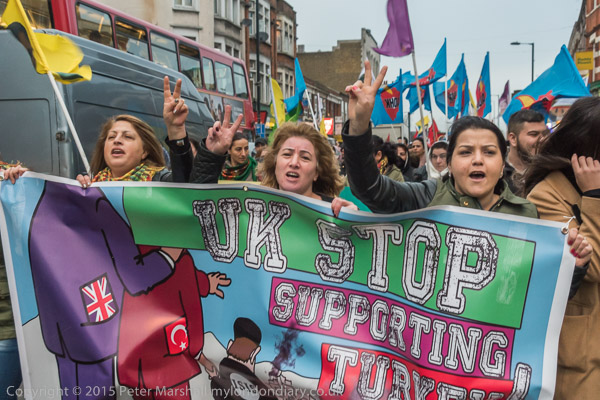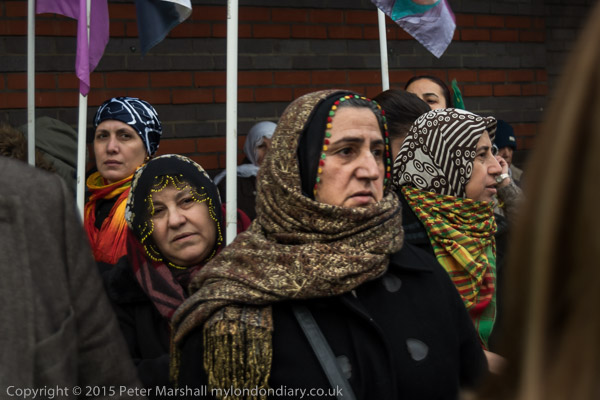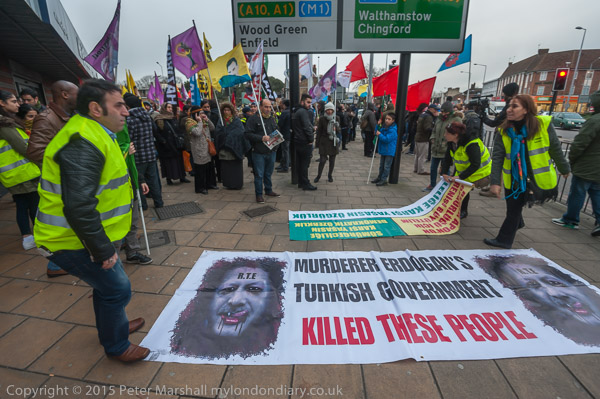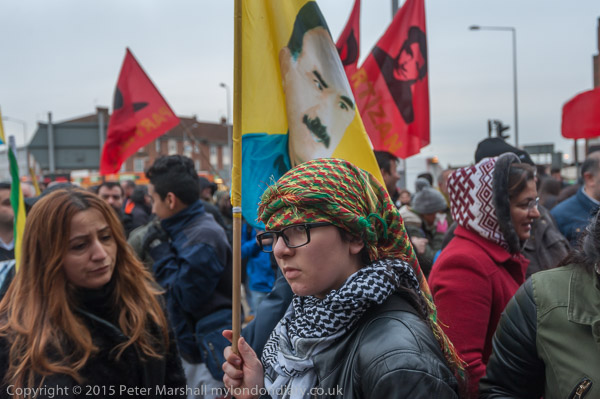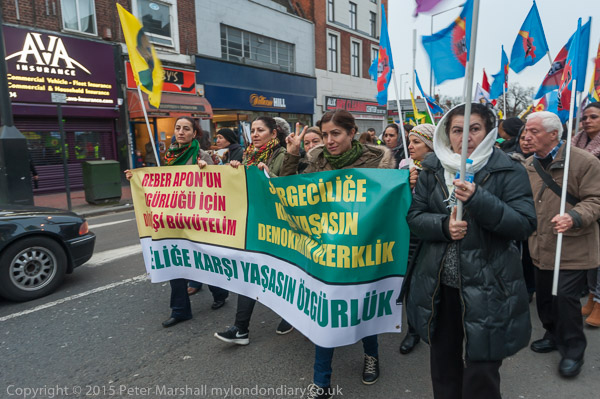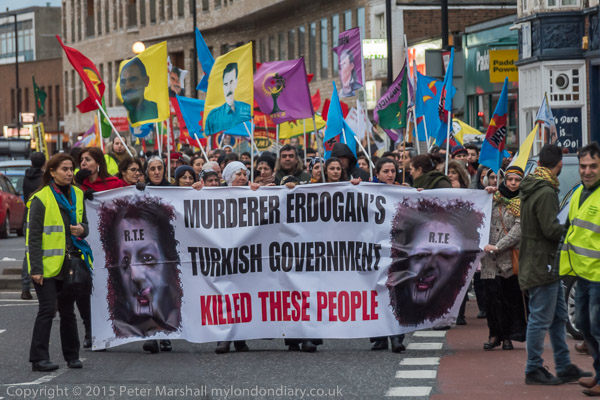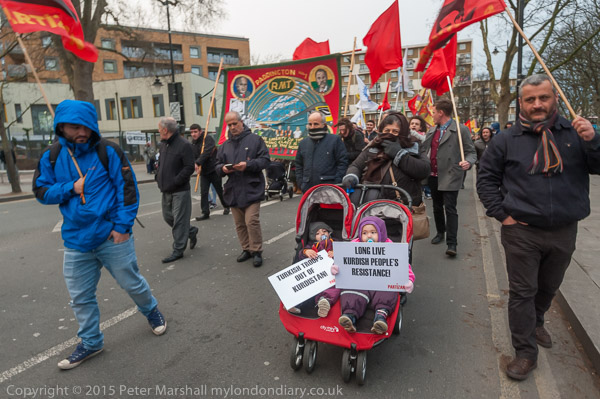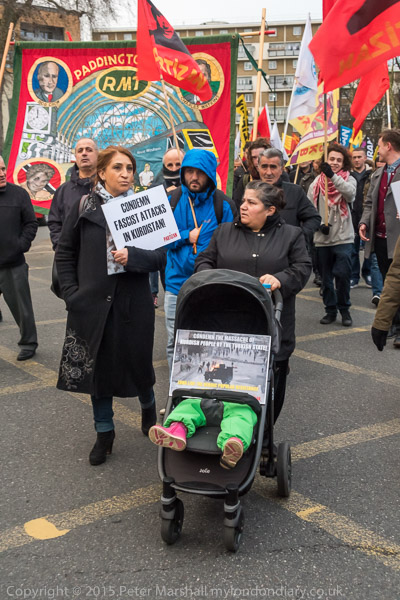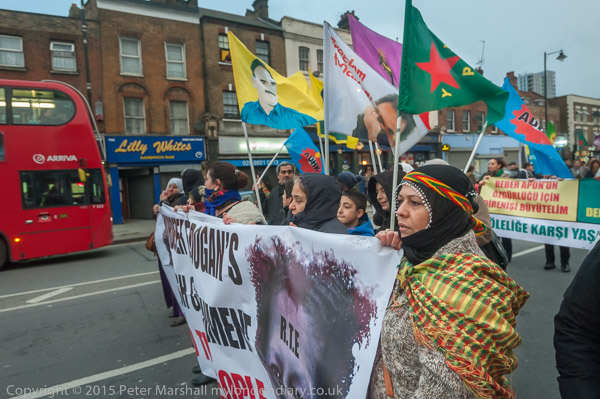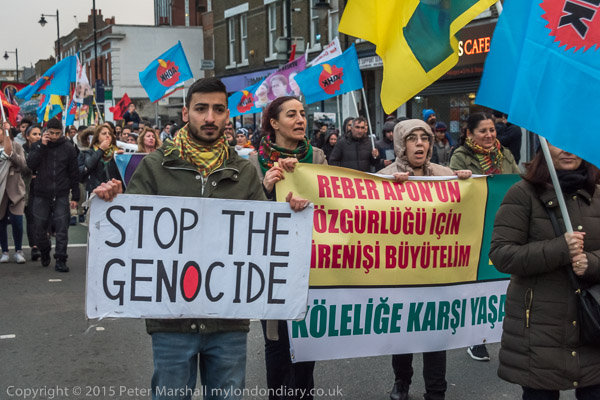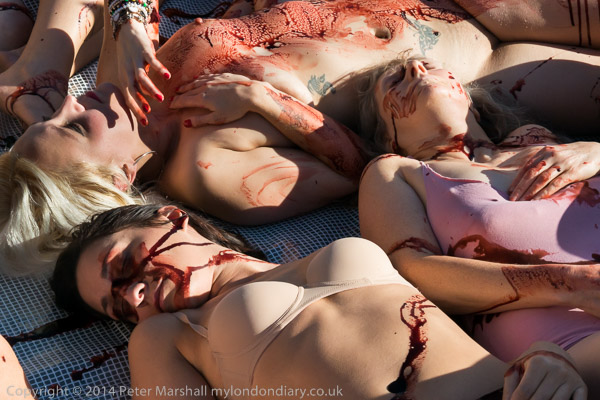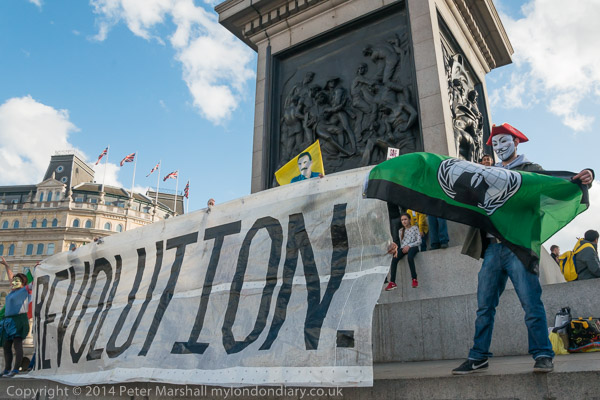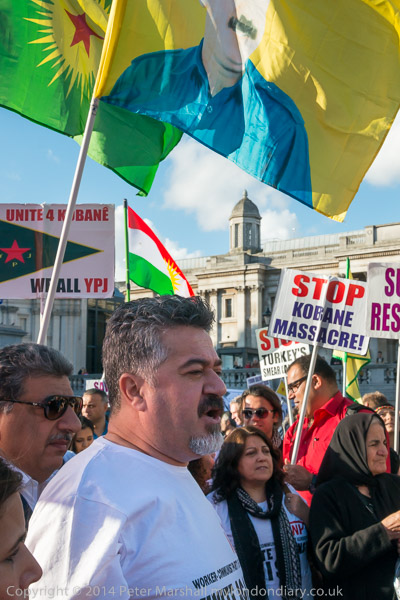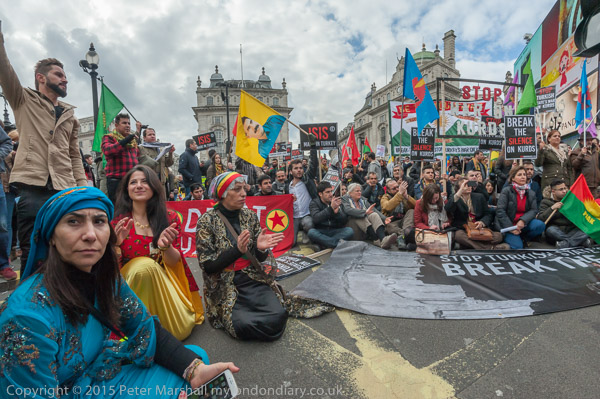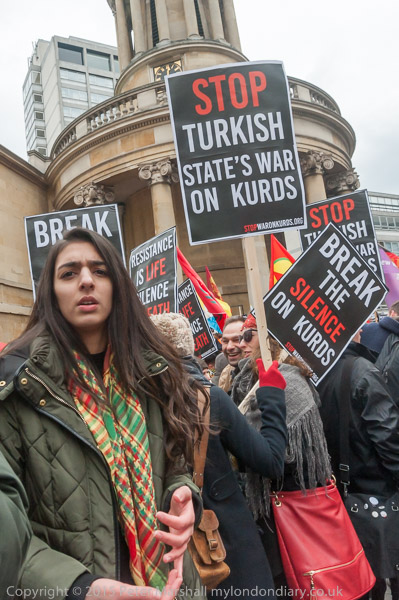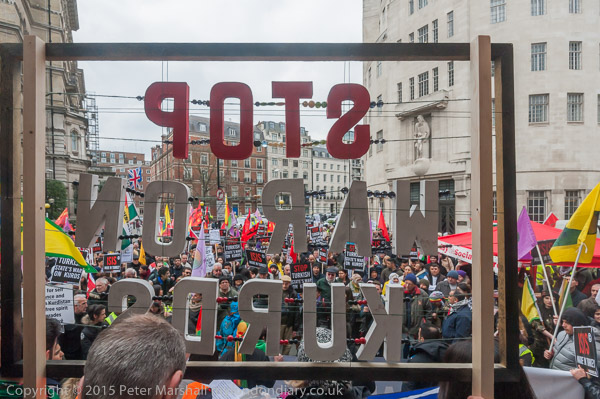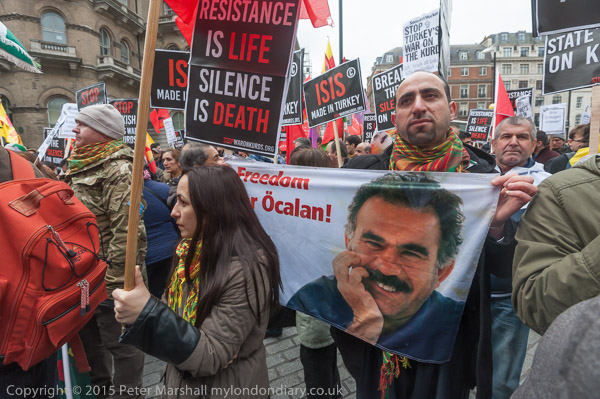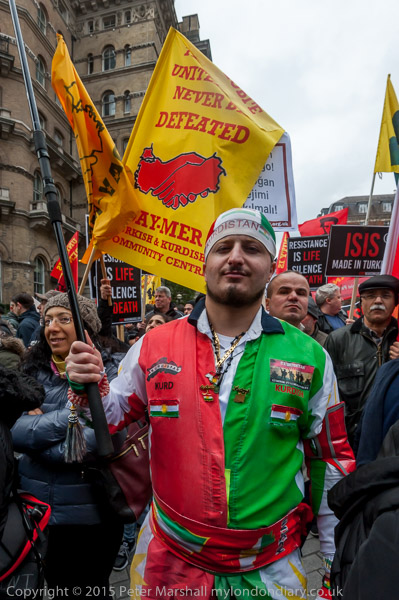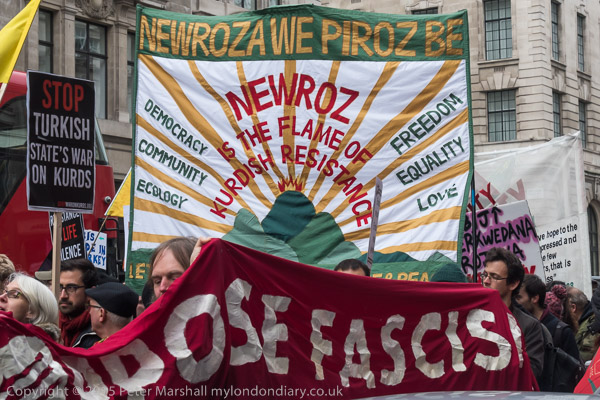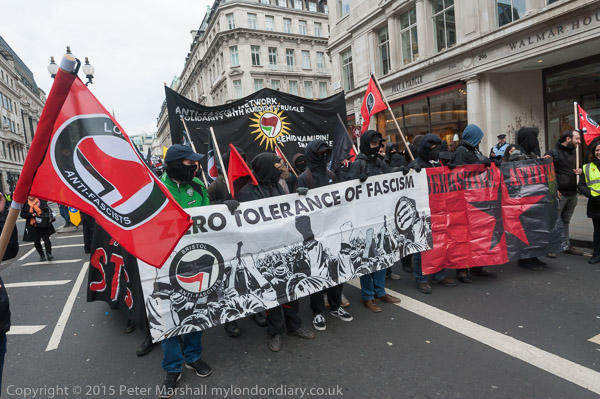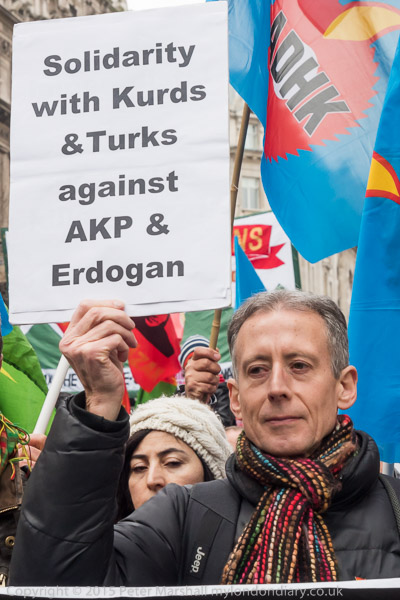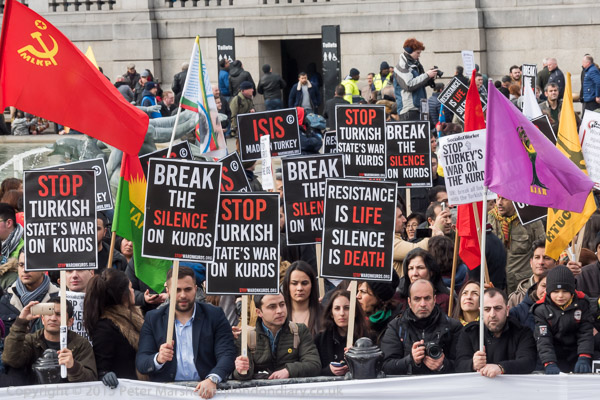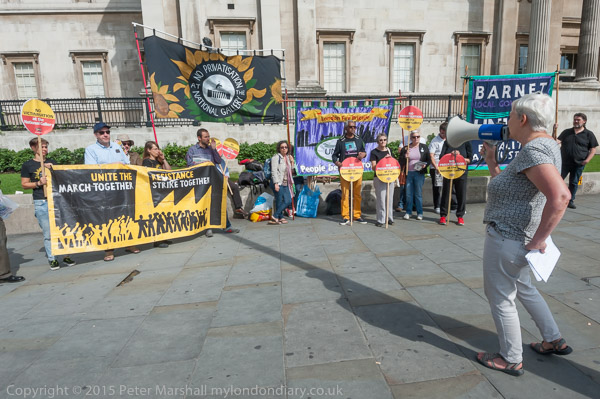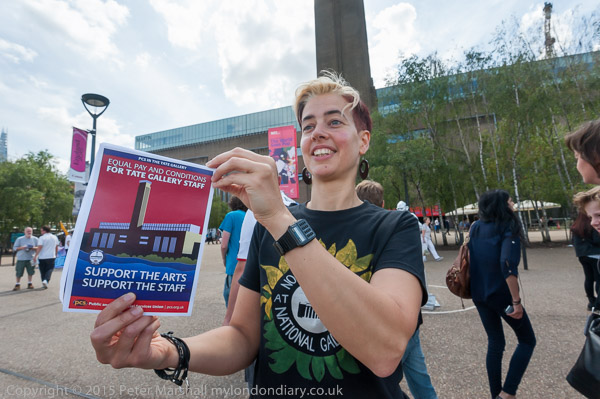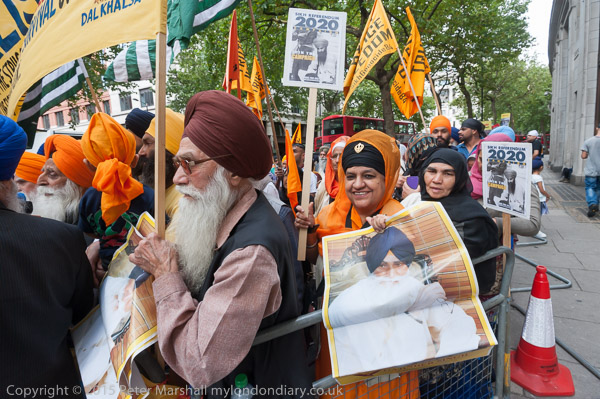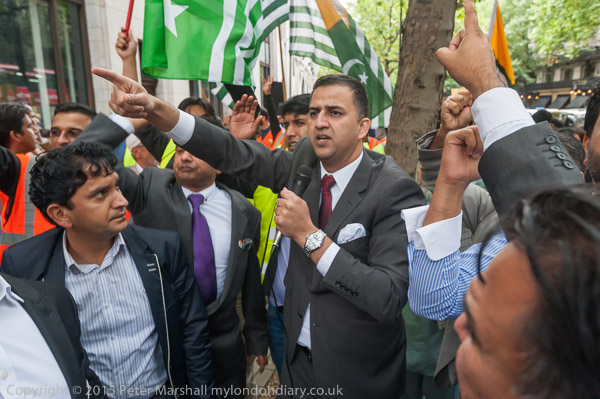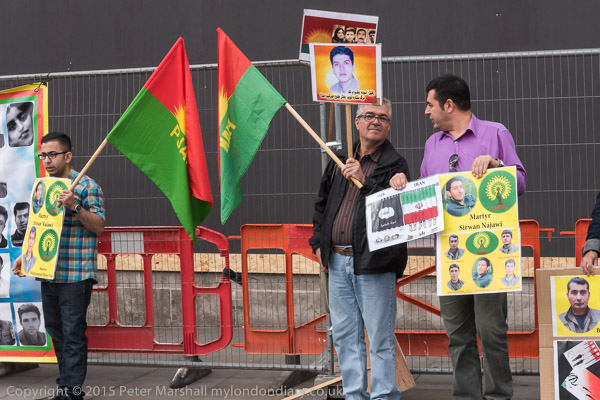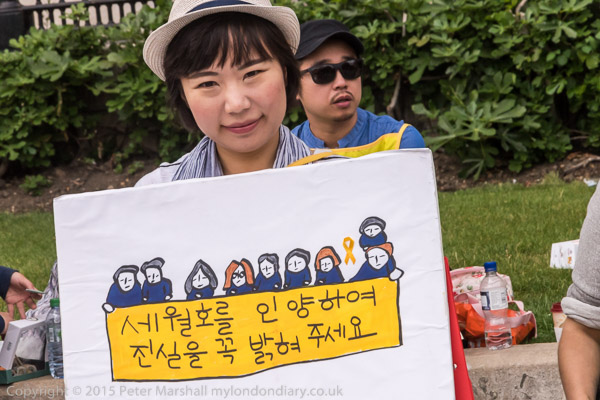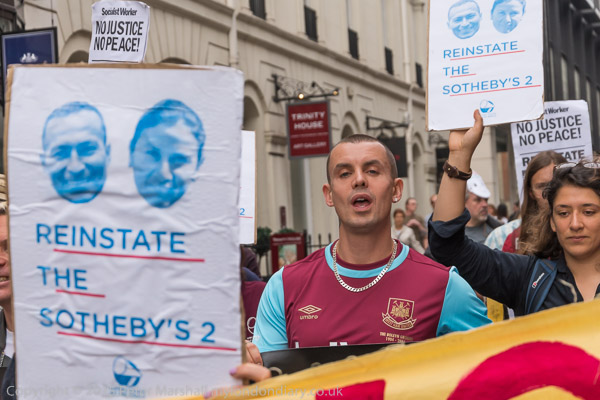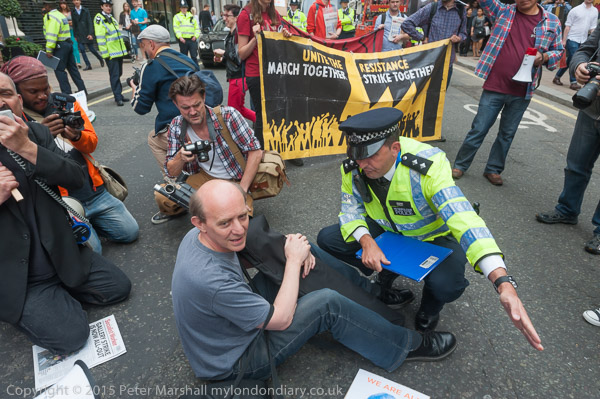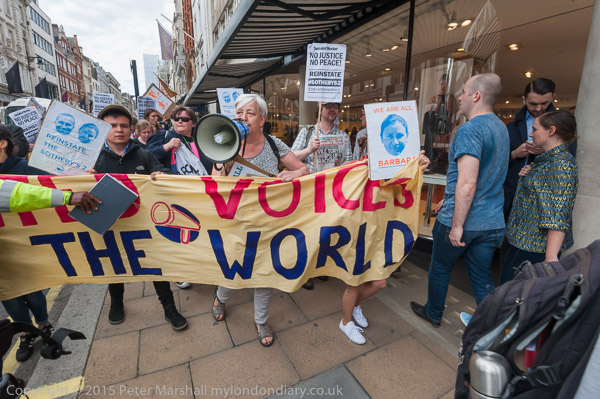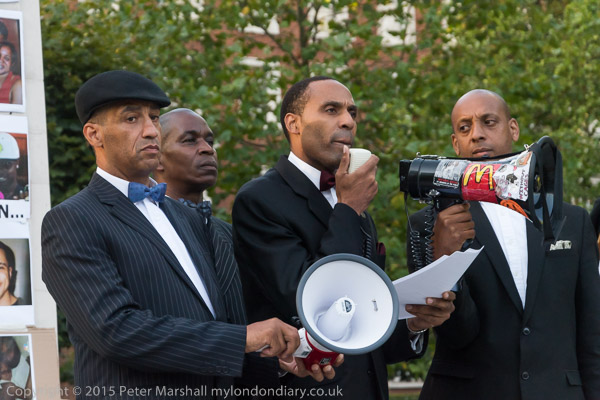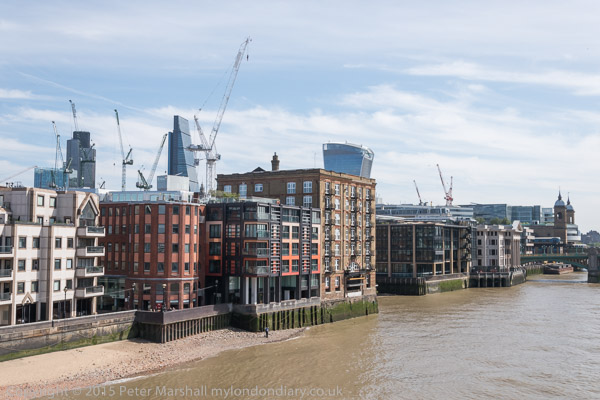Naked Bodies, Acid Attacks, Revolution & Kobane: 1st November 2014 was apparently World Vegan Day and PETA celebrated the event, highlighting the 255 animals killed for food in the UK every second by a similar number of people lying near naked or nearly naked and smeared with fake blood on a tarpaulin in Trafalgar Square. A few yards away the 8th March Women’s Organisation (Iran – Afghanistan) protested against acid attacks on women who do not wear a veil in Iran. I walked onto Westminster Bridge to photograph the distant banner with the message ‘REVOLUTION’ held by ‘Anonymous‘ protesters, some in Guy Fawkes masks, on Waterloo Bridge – and later they brought it to Trafalgar Square where I was covering a rally supporting the Kurds defending Kobane, the capital of Rojava in northern Syria.
PETA World Vegan Day Naked Protest
Trafalgar Square
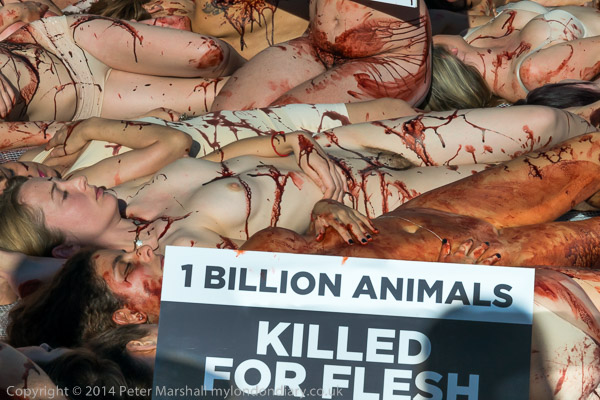
In 1994 Louise Wallis, then Chair of the UK Vegan Society which was celebrating its 50th anniversary, declared November 1st to be World Vegan Day and since then it has been adopted by vegans around the world. It comes at the start of World Vegan Month – which is November.
PETA believe “Animals are not ours to eat, wear, experiment on, use for entertainment, or abuse in any other way“. They state than in the UK 255 animals are killed for food and they held a protest to dramatise this in Trafalgar Square with a similar number of near naked or nearly naked people smeared with fake blood on a tarpaulin.
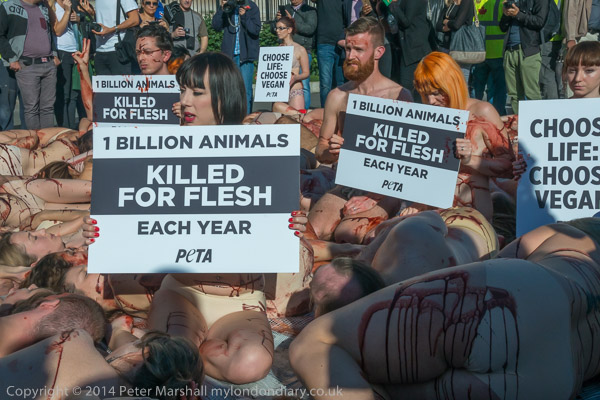
Most of those taking part in the protest were women and a few held large posters with the message:
‘1 BILLION ANIMALS
KILLED
FOR FLESH
EACH YEAR
PETA’
Others held posters ‘CHOOSE LIFE: CHOSE VEGAN’. It was certainly a protest which attracted the interest of tourists and photographers.
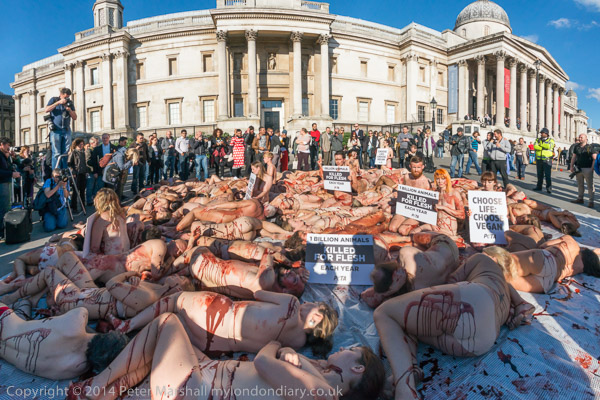
I’m not a vegetarian or a vegan and I commented back in 2014:
“Nature isn’t vegetarian, and certainly not vegan, though of course some species are herbivores. But others are carnivorous or omnivores, and I can see no problem in our own species eating meat or fish though I would like to see all of the current cruel practices involved in producing food for us outlawed. Eating foie gras should definitely be made a crime!”
More pictures on My London Diary at PETA World Vegan Day Naked Protest.
Against acid attacks on Iranian women
Trafalgar Square
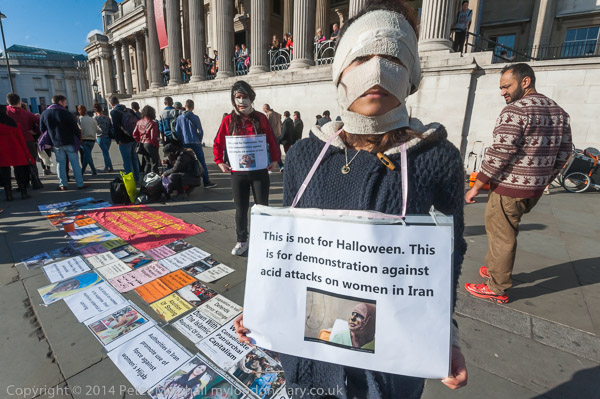
The 8th March Women’s Organisation (Iran – Afghanistan) protested in Trafalgar Square against acid attacks on women who do not wear a veil in Iran.
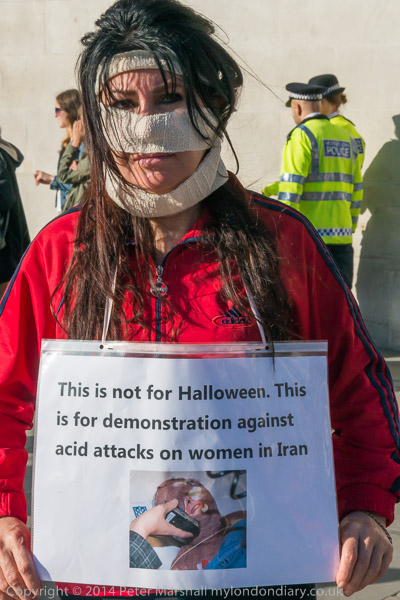
Attacks by gangs encouraged by the regime to enforce strict Islamic rules have left many women scarred and blinded.
Against acid attacks on Iranian women.
‘Anonymous’ Revolution Banner
Waterloo Bridge and Trafalgar Square
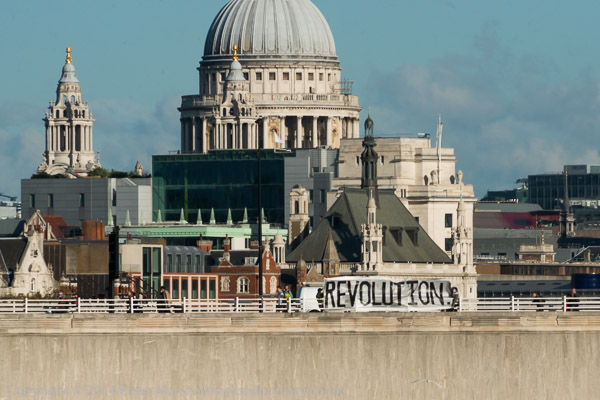
‘Anonymous’ protesters had brought a banner to hold up on Waterloo Bridge, with the message REVOLUTION but it was too small to really make an impact even using the longest lens I own and was rather dwarfed by the City backdrop.
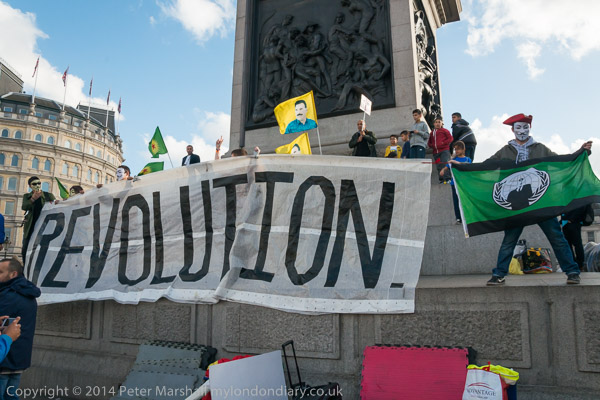
Intended to publicise the Nov 5th ‘March Against Government Corruption’ in London it was rather more effective when they brought it to Trafalgar Square where a protest supporting Kobane was taking place.
Global Solidarity With Kobane
Trafalgar Square
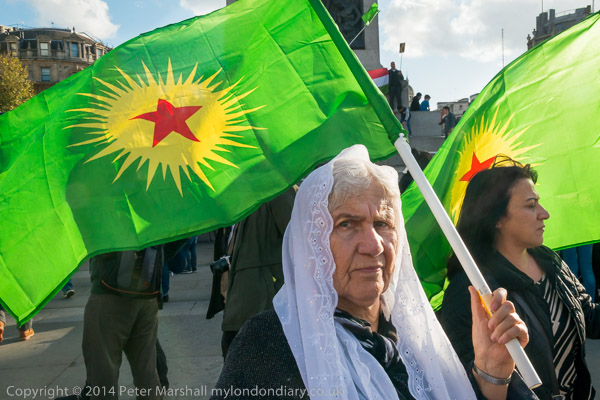
During the Syrian Revolution the government forces had abandoned Kobane to the Kurish People’s Protection Units (YPG) in July 2012 and it had became a centre of part of the autonomous Kurdish-led region of Rojava in north Syria.

From September 2014 to January 2015 Kobane was under siege by ISIS who managed to occupy much of the city. With the help of US air support and US forcing Turkey to allow Kurds from Iraqi Kurdistan to come to join the fight, Kobane was finally freed from ISIS in January 2015.
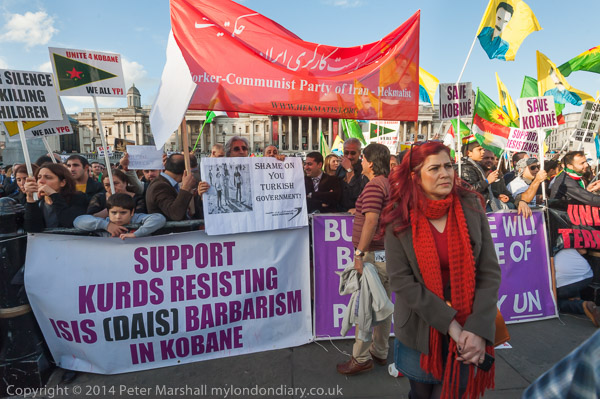
November 1st was also World Kobane Day, and thousands had come to Trafalgar Square on a Global day of solidarity calling for aid for the Kurdish fighters in the YPG (People’s Defence Units), the women of the YPJ and refugees from Kobane.
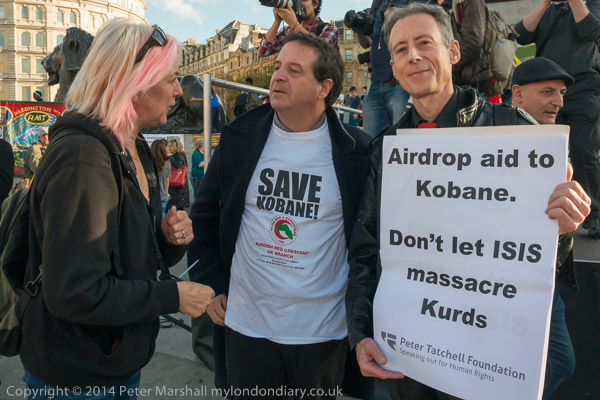
They had also come to support Rojava, which many see as an important democratic development with its constitution which enshrines equality, pluralism, democratic participation and protection of fundamental human rights and liberties.
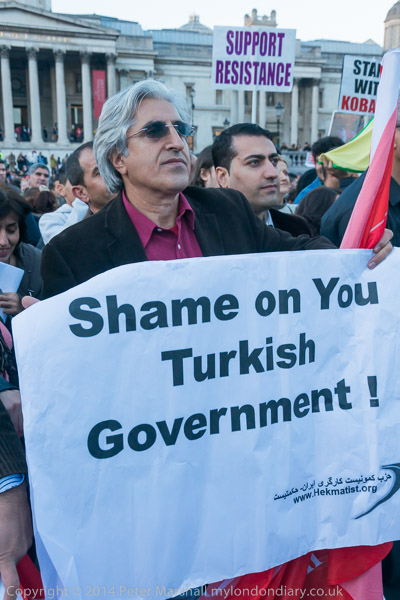
Many were critical of Turkey which was supporting ISIS and financing its fighting by allowing it to export its oil through Turkey as well as preventing Turkish Kurds from joining in the fight while allowing fighters across its border to join ISIS.

Turkey has long suppressed the Kurds and had tried to suppress the Kurdish language and culture, and the protesters called of the release of the Kurdish leader Abdullah Öcalan, kidnapped in Kenya in 1999 and held in a Turkish jail since then. Protesters also called for the Kurdistan Workers’ Party PKK to be removed from the list of proscribed organisations here and elsewhere.
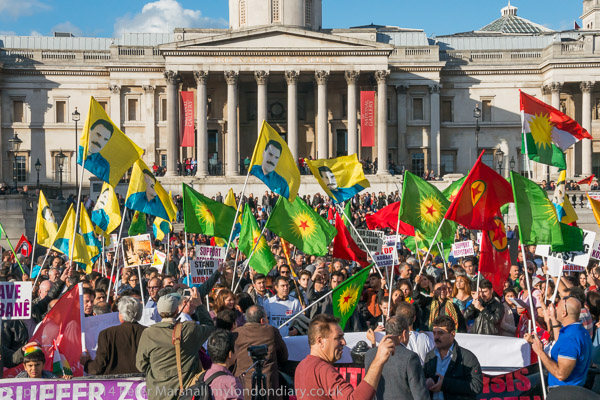
On My London Diary you can read more about the rally and the speakers and there are many more pictures at Global Solidarity With Kobane.
Flickr – Facebook – My London Diary – Hull Photos – Lea Valley – Paris
London’s Industrial Heritage – London Photos
All photographs on this page are copyright © Peter Marshall.
Contact me to buy prints or licence to reproduce.
